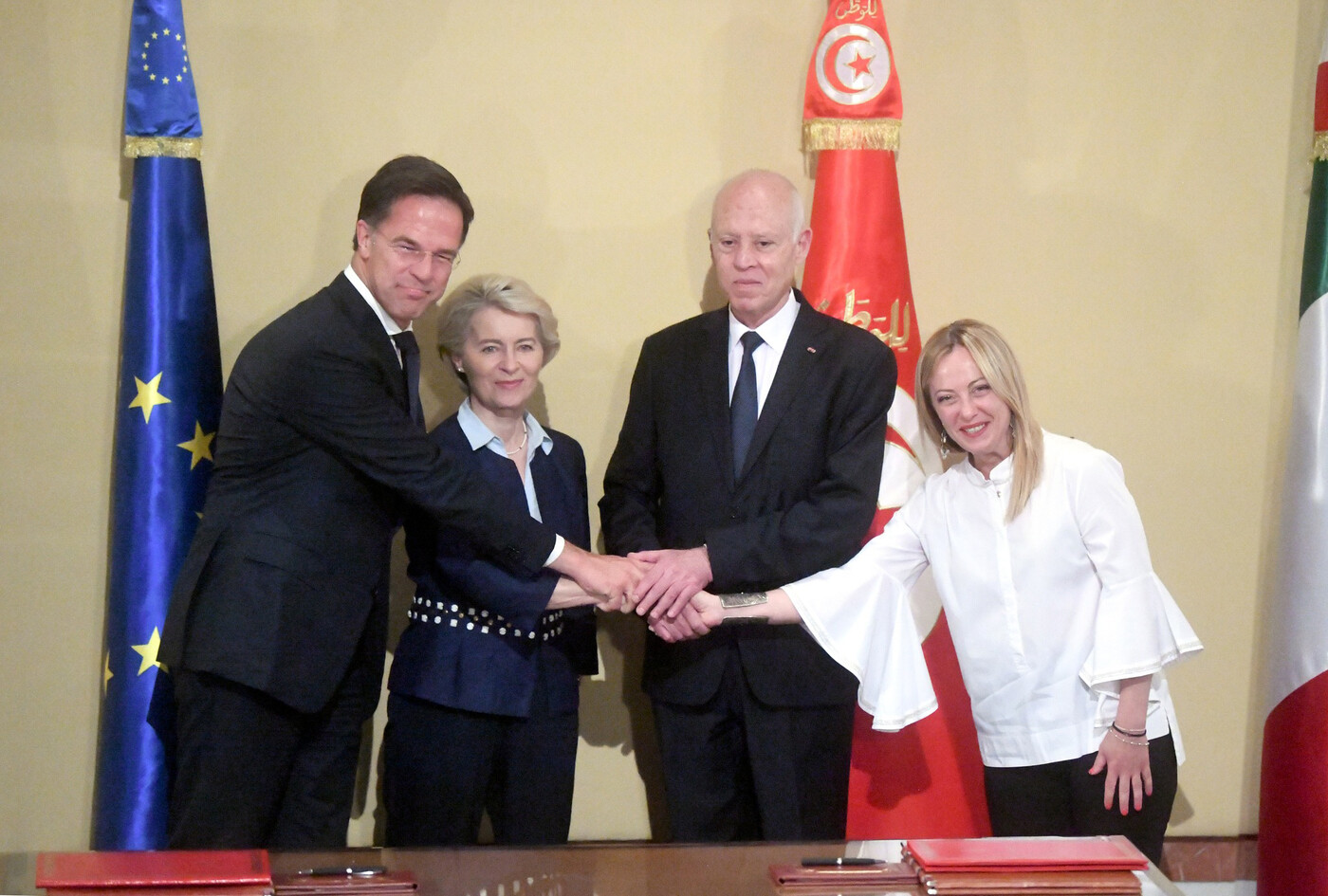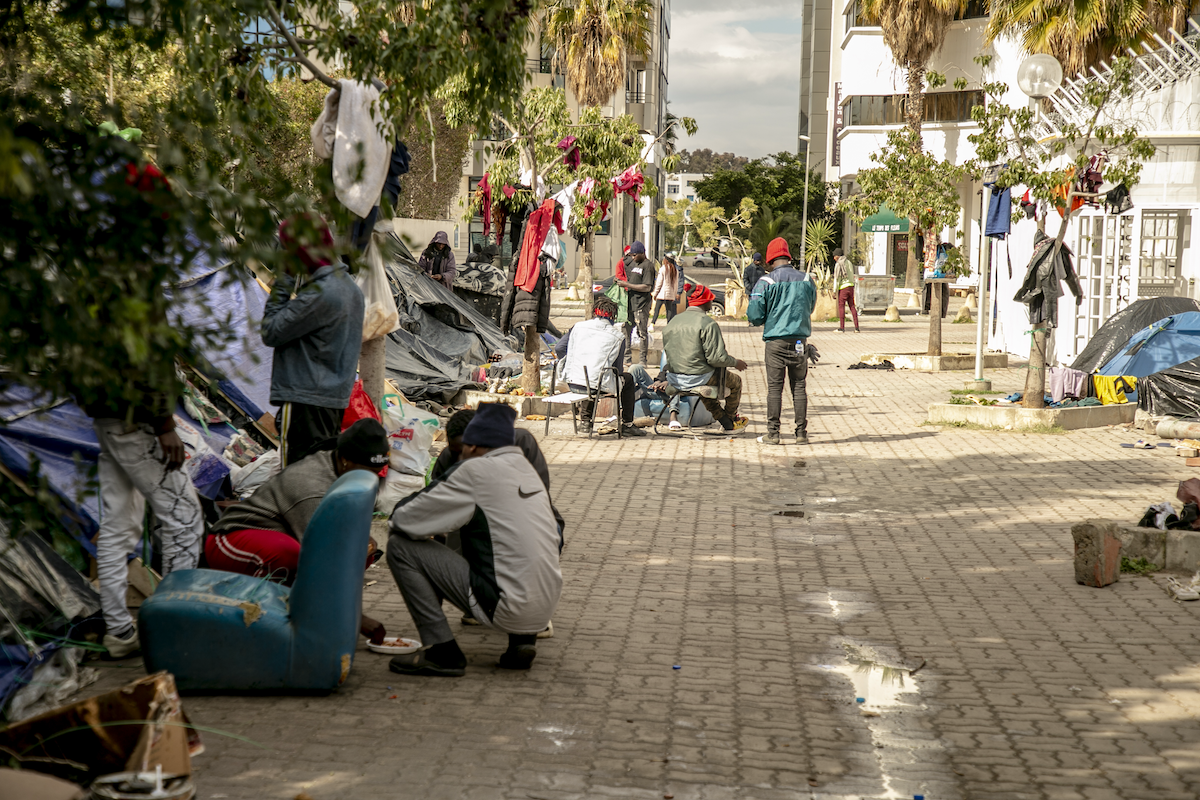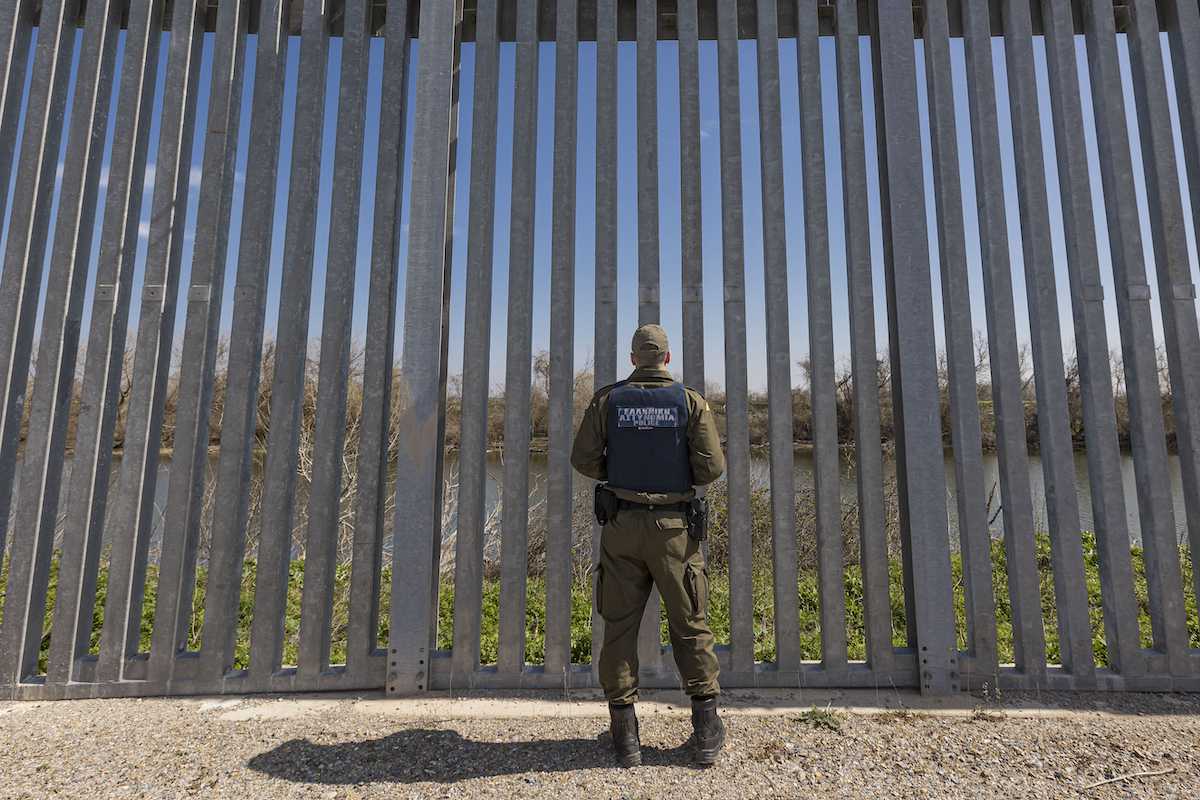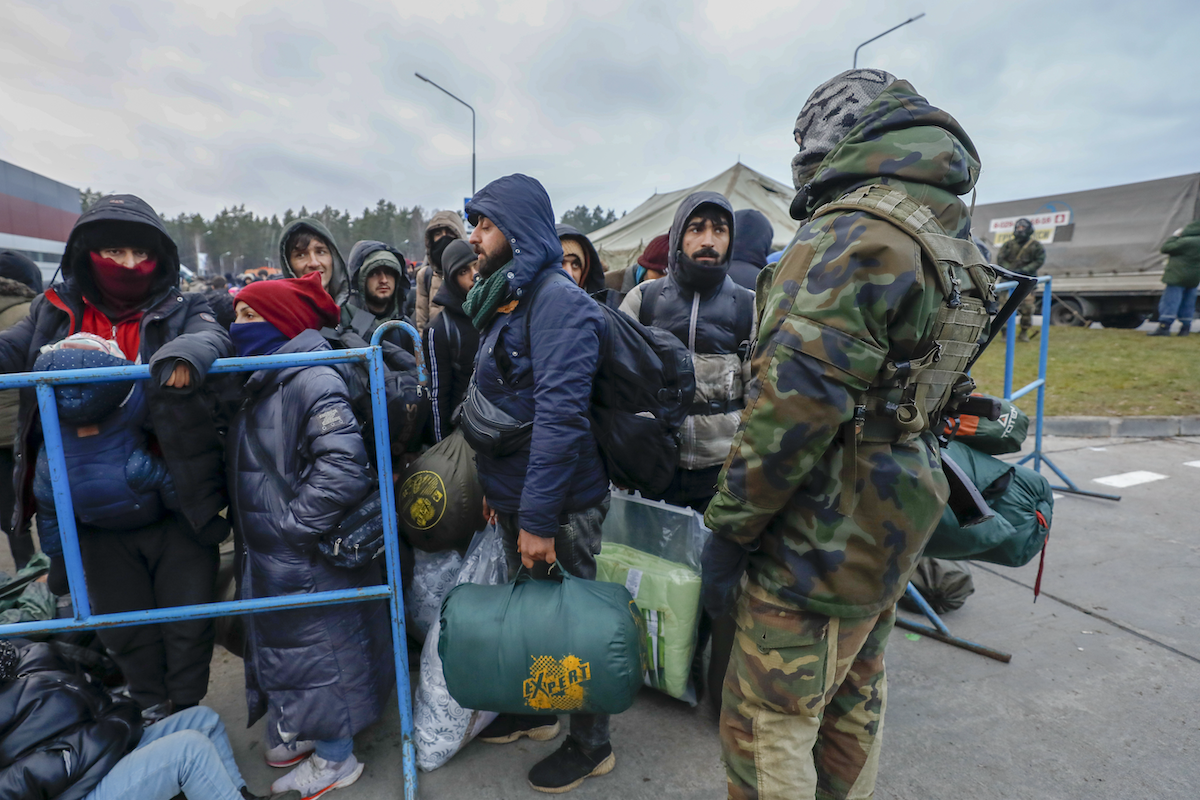MEDIENDIENST: The EU just signed a deal with Tunisia which aims at stricter migration control by the Tunisian authorities. Will this deal result in less refugees and migrants on the “Tunisia-Italy” route?
Ahlam Chemlali: No. My own research and studies from various scholars all over the world, has shown that blocking certain routes does not stop migration. Instead, it just makes migration more dangerous: People take new, more difficult routes, because their need to migrate has not become any less.
What does this mean specifically for the Tunisia-Italy route?
At the moment, the city Sfax is the major departure point for people wanting to cross over to Italy. The Tunisian authorities are currently scaling up border control around that area. As a result, departure points are dispersing to different locations. We are now seeing that, for example, Zarzis is becoming a new point of departure – a Tunisian city located further South, making the route to Italy even longer and more dangerous.
So how can the Tunisian government keep its promise to reduce the number of refugees departing towards Europe?
It cannot. Even if the coastguard intercepts the boats, people will try to depart again and again. In my fieldwork, I have interviewed Tunisian coastguard authorities: They are extremely frustrated, because they recognise the same people on the boats over and over again. The numbers tell the same story: At the moment, we have a record number of interceptions by the Tunisian coastguard, but at the same time a record number of people arriving Italy from Tunisia.
Ahlam Chemlali is a PhD Fellow who has been researching migration in Northern Africa, the Mediterranean and Southern Europe for over a decade. One of her focus countries is Tunisia, where she has conducted fieldwork multiple times. Currently, Chemlali is visiting scholar at Yale University and otherwise based at the Danish Institute for International Studies (DIIS) and Aalborg University in Copenhagen.
What happens to people who are intercepted?
That’s the reason why they try to leave again and again: They are left with nothing. Some people are simply dumped in big camps in the desert, some are just left in the cities. There is no political or legal framework for migration in Tunisia, no asylum system, no integration system like in Europe. People have no means of applying for a residence permit or accessing the labour market.
There is no way to apply for asylum in Tunisia?
The Tunisian state doesn’t have a legal asylum system. The only possibility is to get assistance by the UNHCR, which is severely under-resourced and underfunded. Very few people get this type of assistance, and even those are not exactly well off: If you receive a UNHCR refugee card, you still don’t have access to the labour market or social welfare systems.
…which comes in addition to recent reports of migrants and refugees from Sub-Saharan Africa being persecuted in public, randomly arrested and “dumped” in the desert.
Yes. President Saied is spreading conspiracy theories about “the great replacement”, i.e. racist fantasies about Black people intending to substitute the Tunisian local population. This has led to massive persecutions of Sub-Saharan Africans, but also of Black Tunisians. They’ve been harassed in the streets, beaten up, robbed. Tunisian authorities have put hundreds of people in busses and taken them to the desert, where they were left to die of thirst. Even now, the president has not renounced this policy but called this treatment of the victims “humane”. President Saied is in the midst of turning Tunisia back to an authoritarian country – and in this very moment the EU choses to make a deal with him.
The Tunisian president Saied clearly does not want any Sub-Saharan Africans in the country but nevertheless signs a deal with the EU promising to keep them there. Why?
Tunisia is currently facing not only a big political, but also an economic crisis. It needs loans and support both from the International Monetary Fund and from EU member states. Basically, Tunisia has its back against the wall and agreed to this migration part of the deal, because it needs the other parts, such as the financial support.
What does the reinforced border control mean for the Tunisian society?
It’s no good for the society either: Many Tunisians themselves are trying to leave the country due to its manifold crises. With EU-enforced border restrictions, they run the risk of being locked up in their own country. To address a common assumption: This policy would not only affect young men. Emigration from Tunisia has undergone a demographic shift over the past years, and nowadays more women and even whole families are increasingly leaving the country.
Both third country nationals and Tunisian citizens are trying to bypass the Tunisian border control. Is there a smuggling network like in neighbouring countries?
Smuggling works differently in Tunisia in comparison to other African countries. There is no large smuggling network or even some kind of Mafia in place here. There is no secret involvement of the state or state-like actors like in Eritrea or Libya. Instead, there are two forms of organising migration: First, the so-called “self-smuggling”, meaning that people themselves manage their own journeys. This strategy is mostly employed by Tunisians. They collect money communally among each other, then get a boat and gas, one of them steers the boat and then they leave together. Many have experience with navigating boats due to growing up near the coast or working in fishing before, so that’s their advantage.
What about the Sub-Saharans, do they “self-smuggle”, too?
No. They usually don’t have this experience, as most of them don’t come from coastal areas and lack personal connections into Tunisian coastal cities. They are more dependent on middlemen linking them up with people on the coast – which constitutes the second form of organising migration. But again, this is not a big Mafia work, but mostly fishermen not making enough money off their fishing and therefore using the facilitation of migration as an extra income.
The EU commission claims that the Tunisia-EU deal will rescue migrants, save lives and defeat human smuggling.
The EU calls it rescue, but it’s interception. The people who are intercepted at sea don’t want this interception, otherwise they wouldn’t have started their journey. The term ‘rescue’ would only be correct if a boat is in distress. Regarding the saving of lives: Based on my yearlong research as well as that of many other migration scholars, I would assume the opposite. This migration deal will likely lead to longer, more dangerous and hence more deadly migration routes. Lastly, the deal will not end human smuggling but increase it. With the journey becoming more difficult, people need more and not less smuggling services.
Interview: Donata Hasselmann




